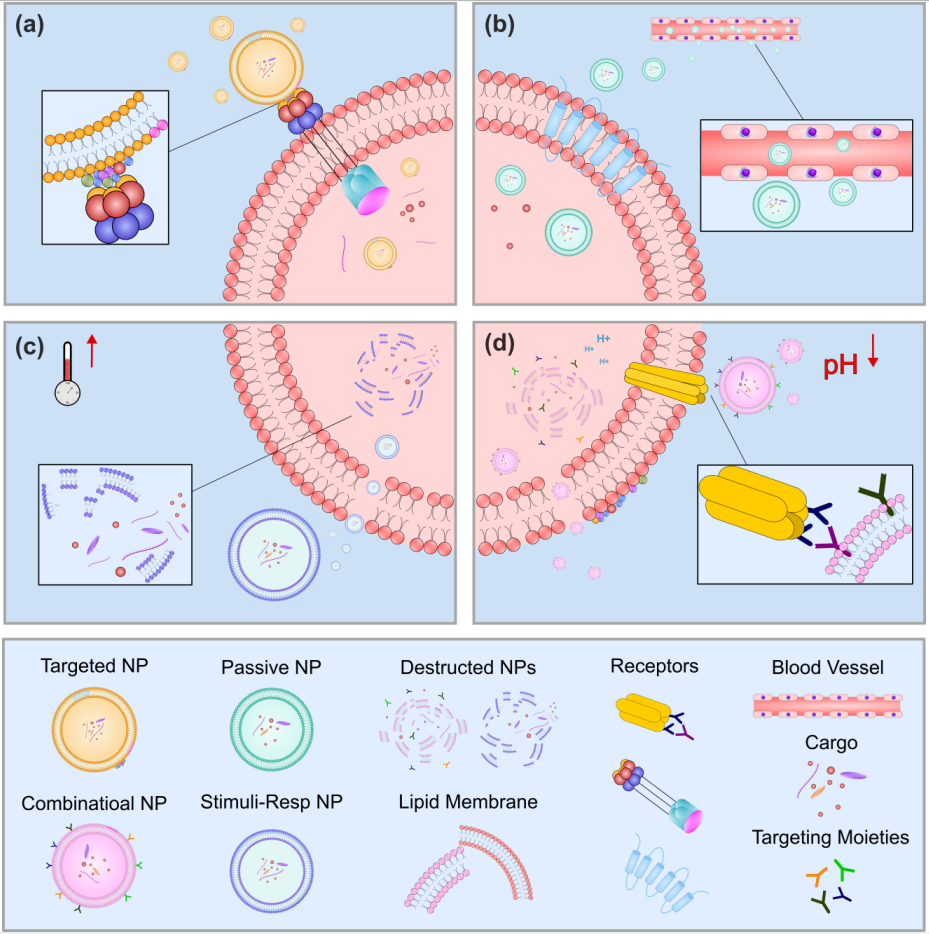Smart Lipid-Based Nanoparticles in Lung Cancer Treatment: Current Status and Future Directions
Ramin Yousefpour Shahrivar1, Zahra Ahmadi Fakhr2, Elham Abbasgholinejad3, Mohammad Doroudian4
Abstract
Lung cancer remains the leading cause of cancer-related deaths worldwide, and conventional treatments for the disease often fall short. Smart nanoparticles (NPs) are emerging as a promising strategy for the treatment of lung cancer, owing to their ability to selectively deliver therapeutic agents to cancer cells while minimizing off-target effects. Smart NPs can respond to specific stimuli such as changes in pH, temperature, or enzymes, allowing them to release their cargo only when triggered. Among the various types of smart NPs, lipid-based nanoparticles, including liposomes, solid lipid nanoparticles (SLNs), cubosomes, and extracellular vesicles (EVs), have garnered the highest interest due to their biocompatibility, low toxicity, and versatility in encapsulating a wide variety of drugs and genetic material. This review discusses the current status of smart lipid-based NPs in lung cancer treatment, including recent advances in targeting strategies, stimuli-responsive NPs, and combination therapies. The challenges and opportunities associated with translating smart lipid-based NPs for lung cancer treatment into clinical applications are also discussed. This review highlights the potential of smart lipid-based NPs to revolutionize lung cancer treatment and improve patient outcomes.
Keywords: nanomedicine, lung cancer, smart nanoparticles, nanotherapeutics, lipid-based nanoparticles, targeted drug delivery
